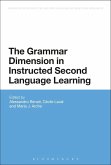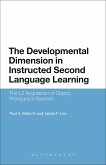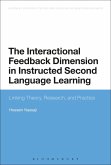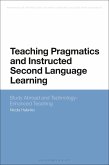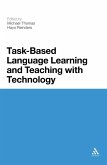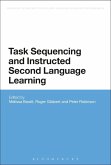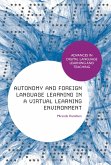Task Sequencing and Instructed Second Language Learning provides theoretical rationales for, and empirical studies of, the effects of sequencing language learning tasks to maximize second language learning. Examples of task sequences, and both laboratory and classroom-based research into them, are presented.
This is the first collection of so far under-researched studies on the effects of task sequencing, framed within the Cognition Hypothesis of Task-based Language Teaching (TBLT) and the SSARC model for task sequencing.
Perspectives include
-- laboratory-based and classroom-based research designs
-- implications for teacher training
-- laboratory and classroom research methods
-- conversational interaction
-- task sequencing and Task Based Language Teaching syllabus design
This is the first collection of so far under-researched studies on the effects of task sequencing, framed within the Cognition Hypothesis of Task-based Language Teaching (TBLT) and the SSARC model for task sequencing.
Perspectives include
-- laboratory-based and classroom-based research designs
-- implications for teacher training
-- laboratory and classroom research methods
-- conversational interaction
-- task sequencing and Task Based Language Teaching syllabus design



